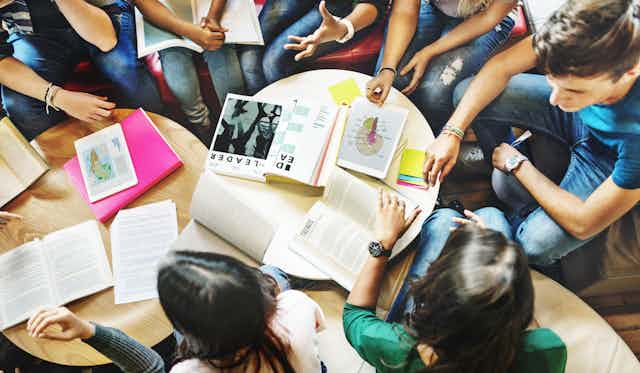For decades, researchers, young people, and activists have campaigned for better sex and relationships education. Yet still today children and young people rarely have the high quality lessons they need in schools around the world.
International research has found that for it to be effective, sex and relationships education needs to start early, as well as be adaptable and needs-led. It must be delivered by well-trained and confident teachers, in partnership with external providers. It also needs to be of sufficient duration – not one-off sessions – as well as relevant, engaging and participatory. And, most importantly, it must be held in a safe, respectful and confidential learning environment, and embedded in a whole school approach.
But if we know what is needed, why are these lessons not in UK schools already? At present, the future of what the sex and relationship education curriculum will look like is still being discussed by politicians in England. Wales, however, is starting to make some headway.
Major reforms in Wales
Since education was devolved to the Welsh government in the 1990s, Wales has sought to embed policy and guidance on its sex and relationships education into a social justice model of rights, equity and well-being.
In March 2017, an expert panel – which I was invited to chair – was established by the Welsh Assembly’s cabinet secretary for education, Kirsty Williams. We were tasked with reporting on how teachers could be supported to deliver high quality sex and relationships education more effectively in schools in Wales. As well as help inform the development of the future curriculum in this area.
Drawing on the available national and international research, we found significant gaps between the lived experiences of children and young people, and the sex and relationships education they receive in school. We also found that the quality and quantity of these lessons vary widely from school to school.

Our panel has now made a series of recommendations to the Welsh government which collectively constitute a major overhaul of sex and relationship education in Wales. This is in line with significant curriculum and teacher training reforms, and is supported by the fact that health and well-being will be a core part of the 2021 Welsh curriculum, with equal status to other areas of the curriculum.
Living curriculum
In our report, we have outlined a vision for a new holistic, inclusive, rights and equity-based sexuality and relationships education curriculum. We concluded that what children and young people need now is a “living curriculum”, relevant to their lives and real world issues.
The idea is that this living curriculum would respond to children and young people’s lives, and enable them to see themselves and each other in what they are learning. It will also evolve to meet changing biological, social, cultural and technological issues and knowledge.
Importantly, we have recommended that sexuality and relationships education should not be relegated to an individual lesson or subject. It should be embedded across the whole curriculum. This means that any subject – science, humanities, or any other – should be able to address key areas of learning about gender, sexuality and relationships. Issues like rights, identity, body image, safety, care, consent, among others will be taught across the school timetable.
To ensure that learning is reinforced beyond the classroom, we have recommended that sexuality and relationships education provision is part of a whole school approach. We also suggest that content and assessment is co-produced with children and young people themselves.
We have also suggested that the name is changed to “sexuality and relationships education”. This is important for children and young people who say that current provision is narrowly focused on the biological at the expense of learning about the social, cultural and political aspects of sexuality.
Making sexuality and relationships education a statutory part of the curriculum is a start, but to achieve all this we need to ensure that those who are delivering it are well-trained, supported and confident. There should be a sexuality and relationships specialist lead educator in every school and local authority. This is in addition to protected time in the curriculum for the topic, so that what is planned for can be delivered on, and not squeezed out by other subjects.
These are significant reforms which will demand investment and planning. But the outcome will be an inclusive, relevant and empowering curriculum that can learn from, respond to and support all children and young people’s needs. Our vision is a sexuality and relationship education curriculum for life long learning and experience.

